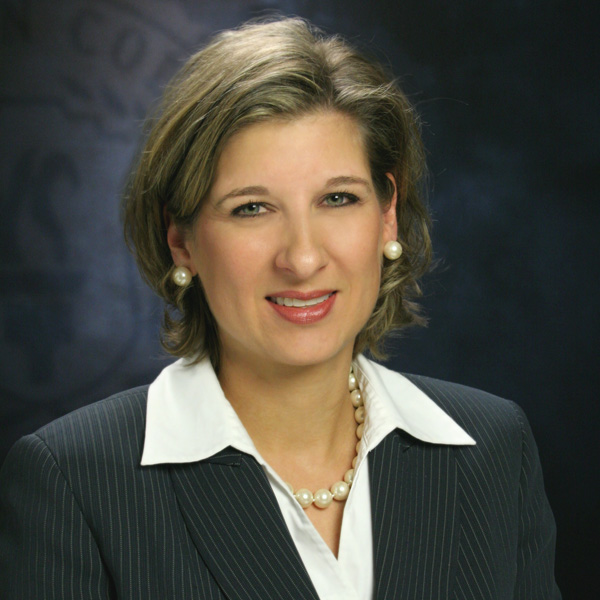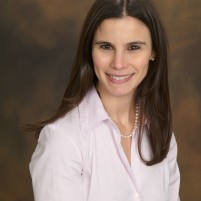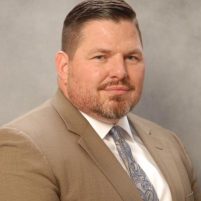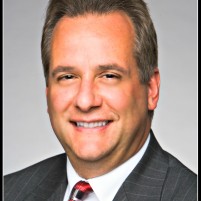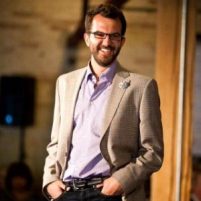
I am always amazed at the dedication shown by our students to their own students and the desire to positively impact others.
Shawntel Landry, Ed.D. is the Provost and Interim President of American College of Education located in Indianapolis, Indiana. The college is unique because it was founded by educators, for educators. Being an administrator at a "teacher's college," Dr. Landry's entire job is about some facet of further educating the educated. She works with all aspects of the college: finance, marketing, enrollment, admissions, registration, student services, technology, and academics. Although the college is located in Indianapolis, Indiana; Dr. Landry spends time at the Dallas office and she travels across the country to various conferences and meetings. Much of her time is spent working on ways to grow the college and provide more access to more students. Still retentive of her passion for being an educator, she loves when she has time to teach one of the college's online classes and interact directly with the graduate students. In her words, "I am always amazed at the dedication shown by our students to their own students and the desire to positively impact others."

Dr. Landry, would you share with us a bit about yourself; your background, childhood, mentors, etc?
I grew up in a small town in South Louisiana, where women either became teachers, nurses, secretaries, or worked at the bank. Both of my parents were teachers, in addition to several aunts and uncles. Education was our life and it was just understood I would be a teacher as well. It was during my master’s degree program that I really flourished under the mentorship of an older classmate and one of my gifted education professors. They saw more in me than I thought possible, and they pushed me to think about leadership in education. Before I knew it, I was finding my voice and presenting at regional and national teacher conferences as well as meeting hallowed leaders in the field of education. I began to see that impacting education was my mission in life.
Please tell us about your educational history.
I began my career obtaining a bachelor’s degree in Elementary Education and then a master’s degree in Gifted Education from the University of Louisiana–Lafayette. I taught at both private and public elementary schools in Louisiana before moving to Houston, Texas, where I taught in the Cypress-Fairbanks district. I left the classroom to work fulltime in K-8 curriculum development - writing, editing, and managing large-scale reading, mathematics, and technology curriculum projects. While working in curriculum development, I went back to school and earned a master’s of business administration as well as a doctorate of educational leadership at Texas Christian University. My goal was to run my own school. In that quest, I spent almost two years at Southern Methodist University working with the SMU Lyle School of Engineering and the Bill and Melinda Gates Foundation on research regarding K-12 national and international mathematics standards and level of alignment among required standards and national test scores. All of these achievements led me to American College of Education, where I am currently the provost and interim president.
Do you feel you have a specialty area?
My area of passion and expertise is gifted education – and not necessarily education of the gifted, but educating every student using gifted education techniques. I quickly found that I loved to see that spark in students, and that using gifted educational techniques and thinking skills were good for all students. I enjoyed challenging and pushing each child to his or her highest potential, convincing each child they could do more than they thought possible.
How did your career evolve?
I started my career in elementary education and did not think I would end up in higher education. But, I see my journey as one of student reach. First, I reached my individual classroom. Then, I reached many classrooms while in K-8 curriculum development. Now, in higher education, my reach has expanded to many schools, districts, states, and countries. In the end, my mission has remained the same: to impact education. I firmly believe that education can solve many of the world’s problems and we must have a way to educate and expose more students, especially women and girls, to the power of educated and informed thinking.
One has to be open to opportunities that arise and be willing to live with uncertainty and ambiguity when pursing new paths.
What gets you excited about your job and why?
I love what I do! We hear from students on a regular basis about the impact their degree has had on their careers and their own ability to lead. That is my highlight…having an impact, knowing that what we do on a daily basis matters. If we can impact our students, then they can impact their students, and the positive cycle of impact continues. All of us know a teacher that has influenced us – someone that made us believe we could do more, be more, and that is what I want for our students. Teaching is truly the best kind of pay-it-forward.
Would you say that your career path has been challenging?
Well, anything worth doing is worth doing well. My life has been filled with ups and downs, but each hill I encountered strengthened my commitment, passion, and perseverance. It has taken personal sacrifice and discipline to get to where I am today. I have had strong mentors along the way that asked good questions and helped in my discernment processes. They pushed me to continually look at the horizon and think about my future. I recently heard the president of Montana State University (Dr. Waded Cruzado) say that all students can succeed in higher education if they have persistence and discipline. Frankly, I think that applies to all careers. Above the surface, people see success. Below the surface is persistence, discipline, failure, personal sacrifice, hard work, determination, and good habits.
Please give us your definition of success.
On a professional level, success is defined by building and leading a successful team that can see evidence of the fruits of our labor in our students. On a personal level, success is defined by the love and happiness in my family.
What personality traits or skills help an educator to be effective in your specialty area?
Most educators will tell you they do what they do because of the students. My team hears me say on a daily basis, “it’s about the students…we exist to serve students.” To be an effective educator, one must have a heart. You must be mission-driven, because the rewards are not necessarily monetary or even very public. The rewards are deeply personal. You are rewarded by the lives you touch: the students that reach out to you many, many years later and tell you about your impact, the students that become successful, the students that persevered, and the students that learned from you and then shared that impact with others.
What changes have occurred recently in your profession?
Higher education has not changed much as an industry in the last hundred years, but the last few years has seen true change. Online learning has opened up new ways of thinking and learning, in addition to greater affordability and access. Competency-based education acknowledges that learning happens both inside and outside classrooms. Generous transfer credit acceptance between colleges and universities opens up faster and more efficient degree pathways. Employers that allow remote employees and telecommuting open up the doors for stronger talent pools, which allow those workers to better balance work and personal lives.
Would you like to comment regarding specifically, the field of higher education
In the field of higher education, college ratings are in debate at the moment. The public wants to understand the investment they have made, and see a return on that investment. But they are rating colleges by graduation rates, loan default rates, tax status, and other elements that have many other variables in play. I’d like colleges and universities to be rated by student outcomes – are students you are educating successful? What does their student learning outcomes data look like? What impact do these outcomes have on their own careers? I’d like to see colleges design some qualitative and quantitative measures that better align to the level of impact that degree had on the graduate. In the end, we (colleges and universities) exist to serve students and that is how we should be held accountable.
What do you hope to have accomplished by the end of your career?
At American College of Education, our overall vision is to “be a significant leader in higher education by providing high-value, innovative, and impactful programs to our chosen markets. By unapologetically breaking perceived links between cost of tuition and quality of programming, the College will prepare today’s students to be tomorrow’s global leaders.” I would like to see this vision become a reality.
What advice would you give someone who wanted to follow in your footsteps?
I would tell others to engage with mentors that challenge them to think outside of their comfort zone and push them to do more, and be more. In addition, one has to be open to opportunities that arise and be willing to live with uncertainty and ambiguity when pursing new paths. There are many pathways to a designation. Early on I learned that all pathways are different and if I just focused on building my toolbox of skills, using my skills to “connect the dots,” and then letting those dots lead me, I would always have new opportunities of learning.
Teacher.org Reflects..
When we asked Dr. Landry if she had one quote which would summarize her career she responded,
“There is a quote by Margaret Thatcher that has been pinned to my wall for many, many years: “Look at a day when you are supremely satisfied at the end. It's not a day when you lounge around doing nothing; it's a day you've had everything to do and you've done it.” I came across that quote when I was working full-time while completing my doctorate degree, and I felt it completely summed up my attitude about each and every day. I read it daily and it motivates me to continue to persevere.”
As you begin your trek towards becoming a teacher, remember that it’s a sign of wisdom to be to be inspired by the challenge and always, always, persevere.


